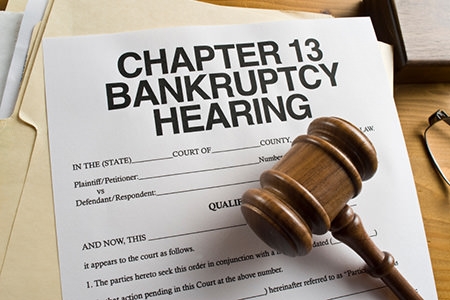
Chapter 13: A Reorganization Bankruptcy
The United States Bankruptcy Code outlines the ways in which debtors can discharge their debts under bankruptcy law. Contrary to what many people believe, “bankruptcy” is not a single action but one of several types of court actions through which debtors can seek court protection. One of the more popular types of consumer bankruptcy is a Chapter 13 or wage-earner plan. This type of bankruptcy is also known as a reorganization because the debtor reorganizes his or her debts, reaffirming some loans and renegotiating the terms of others. In most Chapter 13 bankruptcies, secured creditors are at least partially protected while unsecured creditors usually receive very little if any of their money.
Who Qualifies for Chapter 13 Bankruptcy?
In order to qualify for a Chapter 13 bankruptcy, you must have a regular income. While this income does not necessarily have to be wages, it must be regular and dependable. Your Chapter 13 plan will be based on your current income and debt level, so be sure to be accurate with your records and share everything with your bankruptcy attorney. Hiding assets is a serious offense that could get you into trouble, and hiding debt means it may not be discharged.
What Happens During A Chapter 13 Bankruptcy?
Once your attorney has filed your bankruptcy petition you will receive a stay. This means that your creditors are barred by the court from contacting you. You will also have a hearing at which the judge will listen to your attorney and representatives from your creditors as to the feasibility of your reorganization plan. If the plan meets with the judge’s approval, you will begin making payments to a bankruptcy trustee in accordance with your plan. The trustee will distribute this money to your creditors. It is very important that you make regular, on-time payments to the trustee. If you fail to do so, your stay may be lifted and your creditors could regain the right to sue you for your debts. If you cannot meet the terms of your Chapter 13 plan, you may be able to convert your bankruptcy to a Chapter 7 filing instead. If you believe that you could benefit from a Chapter 13 bankruptcy filing, contact the attorneys at the Oswalt Law Group today. Unlike many bankruptcy law firms, Oswalt Law Group handles both Chapter 7 liquidation bankruptcies and Chapter 13 reorganization bankruptcies.
